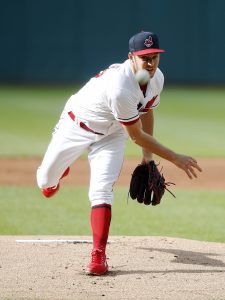Over the coming days, I am discussing some of the higher profile upcoming arbitration cases. I rely partly on my arbitration model developed exclusively for MLB Trade Rumors, but will also break out some interesting comparables and determine where the model might be wrong. 2020 projections are available right here.
Cody Bellinger seeks to break the record for first-time eligible players in 2020, after putting up an MVP campaign in his platform season to tack onto a resume that already has a Rookie of the Year award. Bellinger hit 47 home runs and knocked in 115, while batting .305 and stealing 15 bases through 661 plate appearances. For his career, that gives Bellinger 111 HR, 288 RBI, a .278 average, and 39 steals in 1841 plate appearances. That immediately puts him in rarified air.
In recent memory, only three players have entered arbitration for the first-time with both an ROY and an MVP award. Ryan Howard smashed the first-time eligible arbitration record way back in 2008 with these accomplishments. He had also hit 47 home runs in his platform season, but had batted only .268 (although he did knock in 136 runs). His 129 career home runs and 353 career RBI, plus his .291 career average, led to a $10MM salary after he beat the Phillies in arbitration (who had filed for only $7MM).
It took five more years for another player to reach arbitration with an ROY and MVP, and that was Buster Posey. Posey had only hit 24 HR in his platform year though, and 46 in his career, and ended up with a less remarkable $8MM.
It was not until Kris Bryant again accomplished that combination in 2018 that we saw Ryan Howard’s decade-old record fall as Bryant earned $10.85MM. Bryant is the most obvious comparable for Bellinger here. Bryant had a .295/29/73 platform in 665 PA, which is definitely weaker than Bellinger’s .305/47/115 in 661 PA—especially because Bellinger stole 15 bases to Bryant’s seven. For career numbers, Bryant also fell short in HR (94 versus 111), RBI (274 versus 288), and SB (28 versus 39), but he did have a .288 average to Bellinger’s .278. Of course, batting average has historically been far less important than power numbers for arbitration cases, so it stands to reason Bellinger should top Bryant’s $10.85MM. My model estimates $11.6MM, which may be on the low side.
Finding other comparable players is quite challenging. Two other players have received eight figure salaries in their first year of eligibility. Mookie Betts in 2018 had a .264/24/102 platform year, but had 26 stolen bases that season as well as a career .292/78/310 line and 80 total stolen bases. He got $10.55MM, and Bellinger’s case also looks favorable to his. Last year, Francisco Lindor had a platform .277/38/92 campaign with 25 SB, along with .288/98/310 career along with 71 SB. Lindor received $10.55MM. Again, Bellinger’s case compares favorably.
Overall, this seems likely to just be a matter of how much Bellinger will break Bryant’s record by. I think the floor is probably the $850K difference that the model projects (at $11.6MM), and I could easily see Bellinger landing north of $12MM or perhaps even $13MM.


